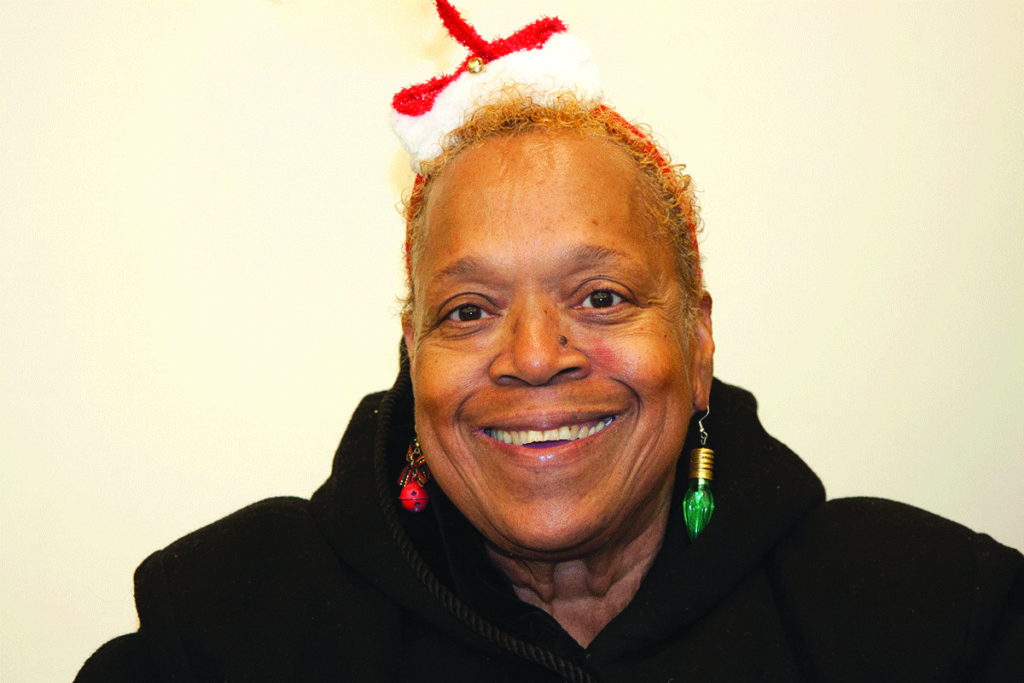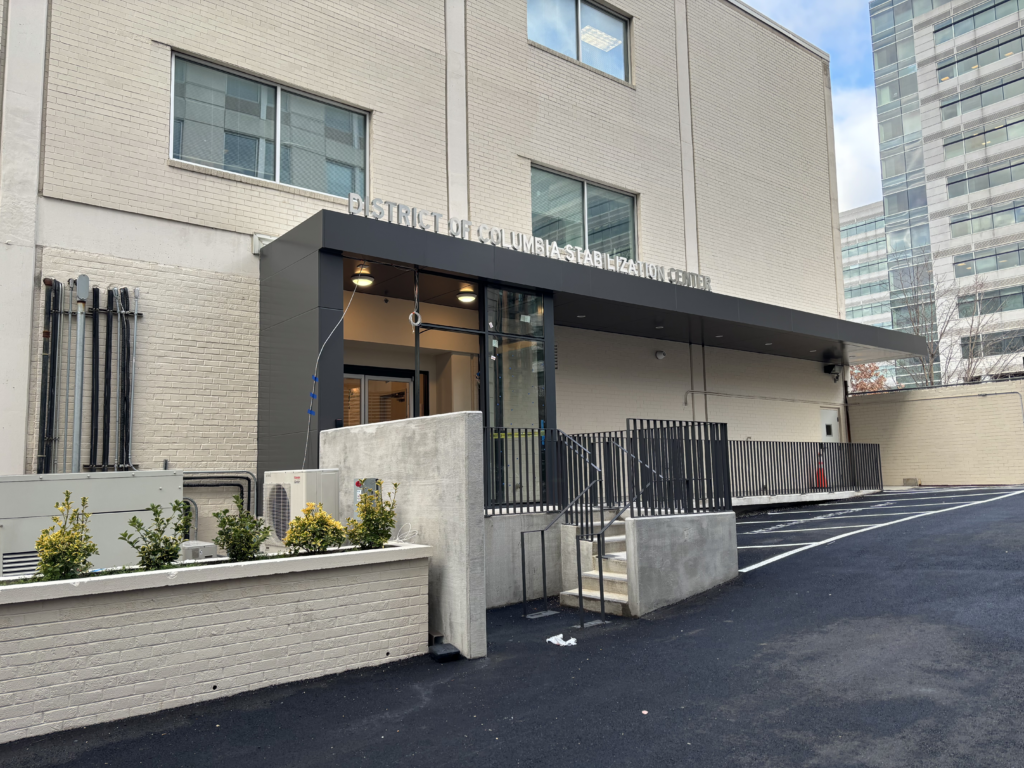Angela Marie Pounds-Bennett of Washington, D.C., died on the morning of New Year’s Day. Her death at 54 was due to a drug overdose, likely heroin or fentanyl, according to her husband, Fred Bennett. It was a shock to him because she was due to start a treatment program just a few days later.
He said it was hard to know the extent to which Angela was using drugs during their marriage but throughout the marriage she had been attending Narcotics Anonymous meetings. “She seemed to have some kind of control over it and I should know better that there’s really no control over those substances,” Bennett said.
This May would have been their fourth wedding anniversary.
Their marriage was defined by looking forward and enjoying their time together rather than dwelling on their respective pasts, Bennett said. “We [weren’t] digging back. We were trying to move forward with our lives and do some traveling and like that,” he recalled. “We had traveled to my home in South Carolina, to Emanuel AME Church, and [spent] time with my lifelong buddy, ate crabs, met good people, met my first cousin, and we just enjoyed ourselves. That’s what we were looking forward to doing, that sort of thing. We would go on trips to shows and to the casino. We were trying to enjoy the time we had left.”
Bennett described Angela as very personable and social and said this was one of the reasons that she enjoyed working at Street Sense Media. “Angela enjoyed people and one of the things she would talk about is the people that she met, and the people she saw on a regular basis,” Bennett said. “The people that she sold papers to, she didn’t just sell them a paper. They would have conversations.”
Lissa Ramsepaul, the Clinical Director at Street Sense Media, was one of Angela’s regular customers at her “spot” on Connecticut Avenue near Politics and Prose Bookstore. When they met, Ramsepaul wasn’t yet working at Street Sense but was familiar with the organization. They bonded in their first conversation, Ramsepaul said. “She was always very well dressed for work and took a lot of pride in her appearance. She commented on my appearance and complimented me and felt I was really very pretty. We just sort of struck up a conversation, and because I knew that that was her spot, when I was in the area I would look for her to buy from her,” Ramsepaul said.
Ramsepaul would continue to see Angela after she began working for Street Sense and Angela came to the office to obtain copies of the paper to sell. She also contributed two poems to the newspaper. Angela also came to Street Sense from time to time for FACE, a group organized by some of the newspaper vendors and contributors whose premise is to empower its members; FACE is an acronym for “Focus, Attitude, Commitment to Excellence.”
Reginald Black, a Street Sense Media vendor and poet who co-leads FACE said Angela was a mentor in the group. He noted that having lived in D.C. for most of her life, she had a rich knowledge of the city’s history and knew about programs that could aid group members. “She was able to give her experience in the city with different things and be able to mentor people through different processes,” Black said. “She was kinda like our ship’s counselor, in a way, at the times she was here. I think that [it] was very insightful, [her] being able to validate some of the vendors’ feelings and be able to share her own about how things should run and how things should go and what we can do to improve the situation.”
Angela began using cocaine when she was 16 and dealt with her addiction to drugs for her entire life, according to her mother, Gwen Pleasant, who was just 15 and using drugs when she had Angela. She struggled to take care of her daughter, who was born with fetal alcohol syndrome. Pleasant said this diagnosis wasn’t common in 1965 and she wasn’t able to access resources and treatment for her daughter. As a result, Angela had difficulties in school both emotionally and academically, according to Pleasant. “She didn’t even complete junior high school because she got with the bad crowd in junior high school and she smoked PCP, tripped out and was never able to regain any sense of stability.”
Pleasant said her daughter spent a few years in a residential treatment facility during her teen years and did well there. But when she turned 18, she signed herself out.
Angela spent the next few years living on the streets and working as a prostitute, according to Pleasant. She said Angela was not only using drugs again but was dealing with major depression with psychotic features that, when left untreated, can cause hallucinations. “She wouldn’t stay on the medication, so she never got better because she never gave herself a chance,” Pleasant said.
Her mother said that in her 20s, Angela spent time living at the Center for Creative Non-Violence. She said it was there that Angela began smoking K2 and was gang-raped by a group of men one night at a party.
Pleasant said Angela was married to a few different men during her 20s but only for short periods of time. She said Angela never had a divorce because all the men died from their alcoholism or addictions.
Angela had run-ins with the law throughout her late 20s and early 30s, primarily due to possession of PCP and rent disputes with landlords. She spent a few years in jail after being caught with a weapon, her husband said. According to D.C. Superior Court records, she was placed on probation in 2003.
Bennett also said Angela spent some time in Baltimore where she reconnected with her father, Samuel Pounds. He added that she talked about trying to go to nursing school there. But being in Baltimore also fueled Angela’s heroin addiction, according to her mother, as Angela’s father was also addicted. Pleasant said Angela passed out one day and was raped by one of her father’s best friends. She ended up living on the streets in Baltimore for a few years before coming back to the District, her mother said.
Court records show that Angela’s issues with the law stopped in 2012. It was around that time that she began working with the Mid-Atlantic Regional Council of Carpenters as a paid protester, Bennett said. She was paid to be a presence on picket lines protesting against companies that used cheap labor rather than hire union members.
It was in this job that she met Bennett, who was a supervisor. He said it was difficult to know all the issues Angela dealt with throughout her life. “She wasn’t a person that you could easily get close to because she was always being protective of herself.” Her mother said Angela tried to address her issues on her own and carried a lot of hatred from the abuse she had experienced. “Angela really tried,” Pleasant said. “But she had been traumatized so much that she really wasn’t consistent in her efforts to get better because she really wouldn’t accept the help that was needed.”
What Bennett said he will always remember about Angela is the way she made him and others feel.
“She had a good heart. I see her, as broke as she was, giving money to people on the street,” he said. “Somebody looked down on their luck, she would give them money and things. More than that, she would give them conversation. I guess the bottom line was in the end I just knew how she made me feel. It was just good. It made me feel good to be with her and be around her.”







